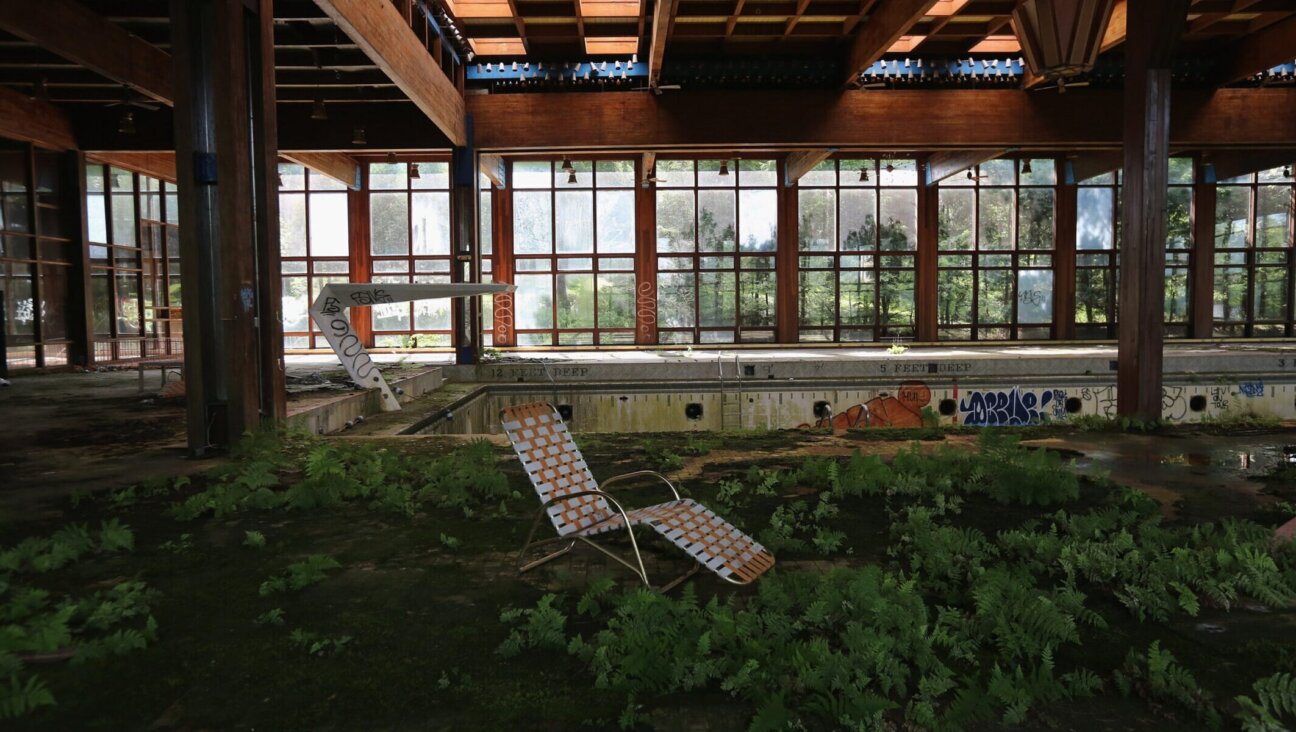Azerbaijan Eyes Aiding Israel vs. Iran
Israel’s “go-it-alone” option to attack Iran’s nuclear sites has set the Middle East on edge and unsettled its main ally at the height of a U.S. presidential election campaign.
Prime Minister Benjamin Netanyahu exudes impatience, saying Tehran is barely a year from a “red line” for atomic capacity. Many fellow Israelis, however, fear a unilateral strike, lacking U.S. forces, would fail against such a large and distant enemy.
But what if, even without Washington, Israel were not alone?
Azerbaijan, the oil-rich ex-Soviet republic on Iran’s far northern border, has, say local sources with knowledge of its military policy, explored with Israel how Azeri air bases and spy drones might help Israeli jets pull off a long-range attack.
That is a far cry from the massive firepower and diplomatic cover that Netanyahu wants from Washington. But, by addressing key weaknesses in any Israeli war plan – notably on refuelling, reconnaissance and rescuing crews – such an alliance might tilt Israeli thinking on the feasibility of acting without U.S. help.
It could also have violent side-effects more widely and many doubt Azeri President Ilham Aliyev would risk harming the energy industry on which his wealth depends, or provoking Islamists who dream of toppling his dynasty, in pursuit of favour from Israel.
Yet despite official denials by Azerbaijan and Israel, two Azeri former military officers with links to serving personnel and two Russian intelligence sources all told Reuters that Azerbaijan and Israel have been looking at how Azeri bases and intelligence could serve in a possible strike on Iran.
“Where planes would fly from – from here, from there, to where? – that’s what’s being planned now,” a security consultant with contacts at Azeri defence headquarters in Baku said. “The Israelis … would like to gain access to bases in Azerbaijan.”
“ICEBERG” RELATIONSHIP
That Aliyev, an autocratic ally of Western governments and oil firms, has become a rare Muslim friend of the Jewish state – and an object of scorn in Tehran – is no secret; a $1.6-billion arms deal involving dozens of Israeli drones, and Israel’s thirst for Azerbaijan’s Caspian Sea crude, are well documented.
Israel’s foreign minister visited Baku in April this year.
But a leaked U.S. diplomatic cable from 2009 quoted Aliyev, who succeeded his father in 2003, describing relations with Israel as “like an iceberg, nine tenths … below the surface”.
That he would risk the wrath of his powerful neighbour by helping wage war on Iran is, however, something his aides flatly deny; wider consequences would also be hard to calculate from military action in a region where Azerbaijan’s “frozen” conflict with Armenia is just one of many elements of volatility and where major powers from Turkey, Iran and Russia to the United States, western Europe and even China all jockey for influence.
Nonetheless, Rasim Musabayov, an independent Azeri lawmaker and a member of parliament’s foreign affairs committee, said that, while he had no definitive information, he understood that Azerbaijan would probably feature in any Israeli plans against Iran, at least as a contingency for refuelling its attack force:
“Israel has a problem in that if it is going to bomb Iran, its nuclear sites, it lacks refuelling,” Musabayov told Reuters.
“I think their plan includes some use of Azerbaijan access.
“We have (bases) fully equipped with modern navigation, anti-aircraft defences and personnel trained by Americans and if necessary they can be used without any preparations,” he added.
U.S. CONCERNS
The administration of U.S. President Barack Obama has made clear it does not welcome Israel’s occasional talk of war and that it prefers diplomacy and economic sanctions to deflect an Iranian nuclear programme that Tehran denies has military uses.
Having also invested in Azerbaijan’s defences and facilities used by U.S. forces in transit to Afghanistan, Washington also seems unlikely to cheer Aliyev joining any action against Iran.
The Azeri president’s team insist that that will not happen.
“No third country can use Azerbaijan to perpetrate an attack on Iran. All this talk is just speculation,” said Reshad Karimov from Aliyev’s staff. He was echoing similar denials issued in Baku and from Israel when the journal Foreign Policy quoted U.S. officials in March voicing alarm that Azeri-Israeli action could thwart U.S. diplomacy toward Iran and across the Caucasus.
Israeli officials dismiss talk of Azeri collaboration in any attack on Iran but decline public comment on specific details.
Even speaking privately, few Israeli officials will discuss the issue. Those who do are sceptical, saying overt use of Azeri bases by Israel would provoke too many hostile reactions. One political source did, however, say flying unmarked tanker aircraft out of Azerbaijan to extend the range and payloads of an Israeli bombing force might play a part in Israeli planning.
Though denying direct knowledge of current military thinking on Iran, the Israeli said one possibility might be “landing a refuelling plane there, made to look like a civilian airliner, so it could later take off to rendezvous mid-air with IAF jets”.
A thousand miles separates Tehran and Tel Aviv, putting much of Iran beyond the normal ranges of Israel’s U.S.-made F-16 bombers and their F-15 escorts. So refuelling could be critical.
INTELLIGENCE COOPERATION
There is far from unanimity among Israeli leaders about the likelihood of any strike on Iran’s nuclear plants, whether in a wider, U.S.-led operation or not. Netanyahu’s “red line” speech to the United Nations last week was seen by many in Israel as making any strike on Iran unlikely – for at least a few months.
Many, however, also assume Israel has long spied on and even sabotaged what the Western powers say are plans for atomic weapons which Israel says would threaten its very existence.
A second Israeli political source called the idea of Azerbaijan being either launch pad or landing ground for Israeli aircraft “ludicrous” – but agreed with the first source that it was fair to assume joint Israeli-Azeri intelligence operations.
The Azeri sources said such cooperation was established.
As part of last year’s arms deal, Azerbaijan is building up to 60 Israeli-designed drones, giving it reconnaissance means far greater than many analysts believe would be needed just to guard oil installations or even to mount any operations against the breakaway, ethnic Armenian enclave of Nagorno-Karabakh.
“With these drones, (Israel) can indirectly watch what’s happening in Iran, while we protect our borders,” legislator Musabayov said – a view shared by Azeri former military sources.
Less reserved than Israeli officials, the sources in Azerbaijan and in Russian intelligence, which keeps a close eye on its former Soviet backyard, said Baku could offer Israel much more, however – though none believed any deal was yet settled.
The country, home to nine million people whose language is close to Turkish and who mostly share the Shi’ite Muslim faith of Iran, has four ex-Soviet air bases that could be suitable for Israeli jets, the Azeri sources said. They named central Kyurdamir, Gyanja in the west and Nasosny and Gala in the east.
The Pentagon says it helped upgrade Nasosny airfield for NATO use. It also uses Azeri commercial facilities in transit to Afghanistan. But U.S. military aid to Azerbaijan is limited by Washington’s role as a mediator in its dispute with Armenia.
One of the sources with links to the Azeri military said: “There is not a single official base of the United States and even less so of Israel on the territory of Azerbaijan. But that is ‘officially’. Unofficially they exist, and they may be used.”
The source said Iran had been a main topic of talks in April with Israel’s Soviet-born foreign minister, Avigdor Lieberman.
RECONNAISSANCE, RESCUE
Azeri tarmac, a shorter flight from key sites in northern Iran including the Fordow underground uranium enrichment plant and missile batteries at Tabriz, might feature in Israeli war planning in less direct ways, the former Azeri officers said.
With Israel wary of its vulnerability to pressure over air crew taken prisoner, plans for extracting downed pilots may be a key feature of any attack plan. Search and rescue helicopters might operate from Azerbaijan, the sources said – or planes that were hit or low on fuel could land at Azeri bases in extremis.
Such engagement carries risks for Azerbaijan and its oil platforms and pipelines operated with international companies.
Defending against Iran is part of public debate in Baku. The United States has provided Azerbaijan with three Coast Guard cutters and has funded seven coastal radar sites as well as giving Baku other help in protecting its oil installations.
Relations have long been strained between the former Soviet state and Iran, which is home to twice as many ethnic Azeris as Azerbaijan itself. Tehran beams an Azeri-language television channel over the border which portrays Aliyev as a puppet of Israel and the West, as well as highlighting corruption in Baku.
Azerbaijan sees Iranian hands behind its Islamist opposition and both countries have arrested alleged spies and agitators.
Faced with an uneven balance of force, Aliyev’s government makes no bones about Israel being an ally. As one presidential aide, speaking on condition of anonymity, explained: “We live in a dangerous neighbourhood; that is what is the most powerful driving force for our relationship with Israel.”
However, Israel’s confrontation with Iran may turn out, the arms build-up in Azerbaijan, including recent Israeli upgrades for its Soviet T-72 tanks, may have consequences for the wider region and for the stand-off with Armenia – consequences that would trouble all the powers with stakes in the Caspian region.
“We keep buying arms. On the one hand, it’s a good strategy to frighten Armenia,” one of the former Azeri officers said of the shaky, 18-year-old ceasefire over Nagorno-Karabakh. “But you don’t collect weapons to hang on the wall and gather dust.
“One day, all these could be used.”
A message from our Publisher & CEO Rachel Fishman Feddersen

I hope you appreciated this article. Before you go, I’d like to ask you to please support the Forward’s award-winning, nonprofit journalism so that we can be prepared for whatever news 2025 brings.
At a time when other newsrooms are closing or cutting back, the Forward has removed its paywall and invested additional resources to report on the ground from Israel and around the U.S. on the impact of the war, rising antisemitism and polarized discourse.
Readers like you make it all possible. Support our work by becoming a Forward Member and connect with our journalism and your community.
— Rachel Fishman Feddersen, Publisher and CEO























